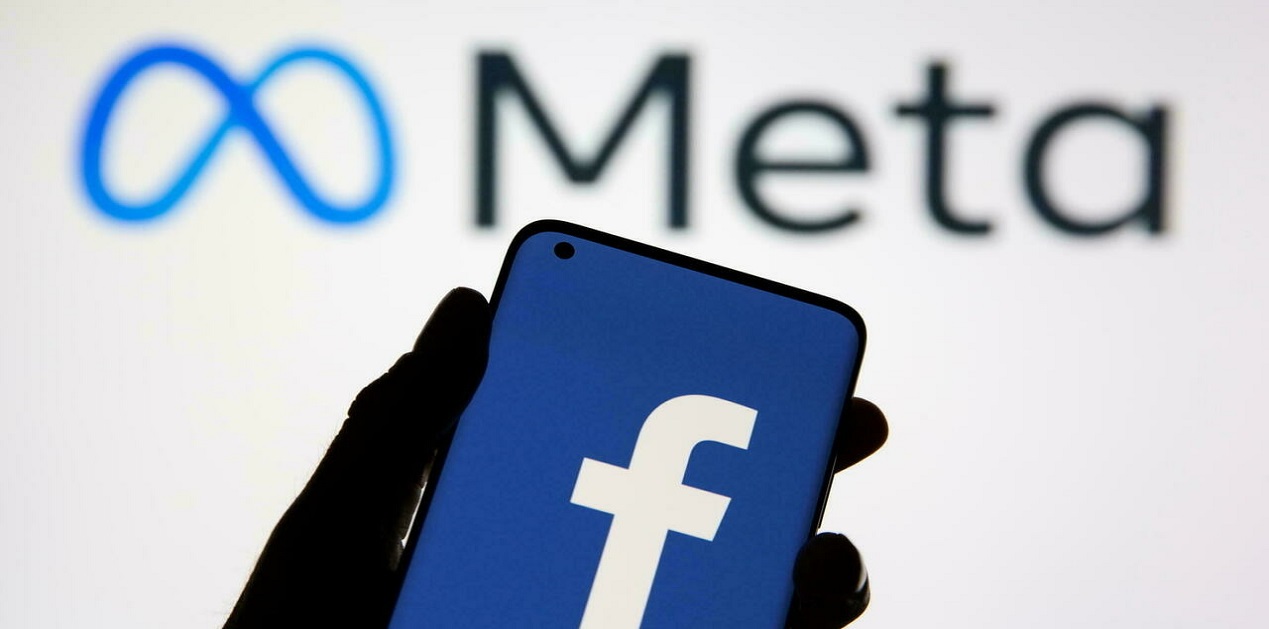October was not good news for the social media giant Facebook and family including WhatsApp, Instagram and Messenger. It came under serious criticism when on October 4, a whistleblower named Frances Haugen who had earlier leaked documents of Facebook’s internal research, revealed her identity on an interview accusing Facebook of prioritizing “profit over safety” by negatively impacting the mental health of the public. [1]To add to the already jeopardised state of Facebook, a global outage occurred on October 4 that crippled the networks of the entire Facebook family for around six hours[2], disrupting businesses all over the world and causing huge losses to the economy. [3]
Again on October 22 another whistleblower filed a complaint with the US Financial regulator Securities and Exchange Commission (SEC) against Facebook, accusing it of putting “profits before people”, [4] an accusation similar to that put forward by Haugen. Haugen testified before the US Senate on October 5 following the accusations made by her regarding Facebook’s negligence in dealing with the harmful effects it causes to public mental health. [5] In yet another research paper published by a team of scientists and academics[6], Facebook algorithms have been found to “nano-target” individual users to deliver ads. In other words, such algorithms are used to deliver specific ads exclusively to a single user based upon her browsing behaviour/ interests, making her prone to manipulation.
After the series of accusations and negative publicity, in a latest development, Facebook on October 28 rebranded itself by changing the company’s name to “Meta”. [7] Meta would now be the parent company which would include Facebook, Instagram and Whatsapp. A new logo was also unveiled, like an infinity-shaped blue coloured symbol that would now on represent the Meta Company. The name Meta is carved out from “Metaverse”, which is the next big idea of the Facebook CEO Mark Zuckerberg - to change Facebook’s entire being, from being just a social media platform to something called a “Metaverse” [8]. The timing for the change of Facebook to Meta is quite an apt one since it can help in erasing the negative image of the company that it suffered in the last few months or at least build a better one.
Much about metaverse is not yet fully known but prima facie it is expected to be a kind of a virtual universe connecting people and bringing together high technologies like virtual reality (VR) and augmented reality (AR), hardware like VR headsets, AR glasses, wristbands and much more, making it an all new level of high technology application. Metaverse has become the most interesting concept for now, drawing interests from investors across the world who are eager to reap the benefits of this next level technology.
Regulating the Social Media
On one hand while Facebook is planning to come back bigger and better, on the other, governments across the world are pushing for online safety bills with adequate regulation of the social media. As per the landmark European Union General Data Protection Rules (GDPR), Irish Data Protection Commission (DPC) on October 13 had proposed a fine of up to36 million Euros on Facebook on grounds of lack of transparency with regards to processing of personal data. [9] The fine was based on a complaint lodged by an Austrian privacy activist, Max Schrems, accusing Facebook of violation of digital rights of the public. The final verdict on the fine is yet to come. Previously in September, Facebook owned WhatsApp was fined a record 225 million euro by the Irish DPC on grounds of privacy breaches. [10]
The Indian government’s new Information Technology Rules 2021has provisions that regulate the social media, with a special emphasis on the protection of women and children; failure to comply with which could lead to penalties like removal of the social media companies’ ‘intermediary’ status (that prevents any liability for the users’ published content), sanctions or even punishment under the law. [11] Earlier in January, Facebook owned WhatsApp’s new privacy policy had led to a huge tussle between the Indian government and the company, when the government had raised serious concerns regarding the safety and sovereignty of personal data in the policy. [12] Data privacy, fake news, ad targeting and hate speech are areas in which Facebook has faced repeated attacks from various governments and activists. The assiduous planning of Metaverse could be an answer to these attacks, or rather a solution to these problems since the entire idea of social media might itself change with its advent, causing little need to deal with them any longer.
Metaverse amidst Allegations
Facebook has stated that the metaverse would not be a single company, rather a collaborative effort with policymakers, experts and industry partners across the world. [13] It would be an inclusive technology industry promoting equity, providing people with economic opportunities and encouraging a digital economy. For now, Facebook has made an announcement of creation of 10,000 new jobs across the European Union (EU) to build the metaverse within the next five years and a $50 million investment for two years through the XR Programs and Research Fund in global research for the responsible development of products that will assist in running the metaverse.
The idea of metaverse is no doubt as innovative and marvellous like once the idea of a “social media” was for the world. But unfortunately within less than a decade’s time, the ugly side of social media started to come out with allegations from governments, whistleblowers and researchers all over the world on repeated misuse of algorithms to manipulate people on their platforms. Provoking negative emotions in people in order to make profits is one of the scariest allegations on Facebook put forward by whistleblower Frances Haugen, the data scientist who earlier worked with the civic integrity team of Facebook that deals with combatting misinformation. The secretly copied files from Facebook's internal research that she leaked was published in the Wall Street Journal's “Facebook Files series”, [14] which mentioned that the social media company did not take adequate steps to combat misinformation. Facebook’s internal research even showed that Instagram caused harm to the mental health of teenage girls, according to the files.
On October 6, Mark Zuckerberg in a Facebook post[15] stated that Facebook seriously handles misinformation issues and takes care of the well-being of people and that the allegations were a misrepresentation of Facebook’s intentions since the company invests a lot on research dealing with fighting harmful content. As far as targeted videos were concerned, lesser umber of viral videos and more content from friends and family was actually meant for people to spend less time on their platform for their well-being and not for profits. Regarding the impact of Facebook platforms on children, he stated that building a safer technology is more important rather than keeping them completely away from it though the “Instagram kids” project is on halt for more discussion and consideration from policy makers and parents. [16] Also Facebook has advocated for updated internet regulations for a better age-appropriate experience.
Under such strict scrutiny from regulators, Facebook seeks shelter in rebranding itself, in a structural reorganisation and massive investment that could surely shift the focus temporarily from the algorithmic debate to the metaverse. Metaverse might be a technology revolution, massively benefiting the tech industries and start-ups that would be an important part in building it in the coming decade. It is going to create avatars of people, who would be a part of the virtual reality and augmented reality worlds where they can traverse seamlessly. [17] The avatars can even be transported to different digital worlds irrespective of where the real person is on earth; quite similar to a science fiction movie. It would be applicable in connecting friends and family together, gaming, healthcare applications and even for remote office work.
Is Facebook becoming the Internet? Way Forward
The Facebook Company has already captured around 60 percent of the total internet population today, with around three billion monthly active users across the world. [18] Users are dependent on it for businesses, communication, advertising, marketing apart from just getting connected with friends and family. It is also used for logging into other apps, websites and even hardware systems like smart TVs, and Internet of Things (IOT) devices clearly indicating the level dependence of users on it in their daily lives. With the all new metaverse, the most certain prediction is that this dependence will only increase with time since any technological advancement has only made the world more dependent on it as it makes life easier and better.
This could possibly mean a more severe ripple effect in case of any kind of cyber attack or a ransomware attack, let alone outages. Moreover, since metaverse plans on building more applications of AI, this would also mean a higher volume of data generation from users since AI systems need to be fuelled by data. The future will see billions of avatars of real life humans, living in a virtual universe, working and leading a parallel life but the problem is that if left unregulated, this technology can turn into a new source of power dominance. Therefore, investing in newer and updated regulations by policymakers from time to time especially regarding the ethical use of AI and preserving basic human rights can help in checking the dark sides of this technology, if any.
References
[1]Hanna Towey, “This 13-minute video of a Facebook whistleblower is one of the most clearly articulated arguments against Facebook you'll see”, Business Insider India, October 4, 2021
[2]Facebook Engineering, “Update about the October 4th outage”, October 4, 2021
[3]Mark Sweney, “Facebook outage highlights global over-reliance on its services”, The Guardian, October 5, 2021
[4]Hanna Towey, “A new Facebook whistleblower was reportedly told by company officials to 'focus on the good' after raising problems like illegal drug trades on the platform”, Business Insider India, October 23, 2021
[5]Russell Brandom, Makena Kelly, and Adi Robertson “EVERYTHING YOU NEED TO KNOW FROM THE FACEBOOK WHISTLEBLOWER HEARING”, The verge, October 5, 2021
[6]José González-Cabañas, Ángel Cuevas, Rubén Cuevas, Juan López-Fernández and David García,“Unique on Facebook: Formulation and Evidence of (Nano)targeting Individual Users with non-PII Data”October 16, 2021
[7]Meta, “Introducing Meta: A Social Technology Company”, October 28, 2021
[8] Meta, “Building the Metaverse Responsibly“, September 27, 2021
[9]Reuters, “Irish regulator proposes 36 mln euro Facebook privacy fine - document”, October 13, 2021
[10]Conor Humphries ,“WhatsApp fined a record 225 mln euro by Ireland over privacy”, Reuters, September 2, 2021
[11]‘Government notifies Information Technology (Intermediary Guidelines and Digital Media Ethics Code) Rules 2021’, Press Information Bureau, February 25, 2021.
[12] ‘WhatsApp asked to withdraw changes to privacy policy by MeitY’, PTI, January 18, 2021.
[13]Meta, “ Building the Metaverse Responsibly “, September 27, 2021
[14]The Wall Street Journal, “the facebook files A Wall Street Journal investigation”
[15]https://www.facebook.com/zuck/posts/10113961365418581
[16]Adam Mosseri,“Pausing “Instagram Kids” and Building Parental Supervision Tools”, Instagram, September 27, 2021
[17]Mike Isaac, “Facebook Renames Itself Meta”, The New York Times, October 28, 2021
[18]Brian Dean ,“Facebook Demographic Statistics: How Many People Use Facebook in 2021?”, Backlinko, September 10, 2021
(The paper is the author’s individual scholastic articulation. The author certifies that the article/paper is original in content, unpublished and it has not been submitted for publication/web upload elsewhere, and that the facts and figures quoted are duly referenced, as needed, and are believed to be correct). (The paper does not necessarily represent the organisational stance... More >>
Image Source: https://pledgetimes.com/the-company-facebook-changes-its-name-to-meta-amid-multiple-controversies/











good information thanks
Post new comment